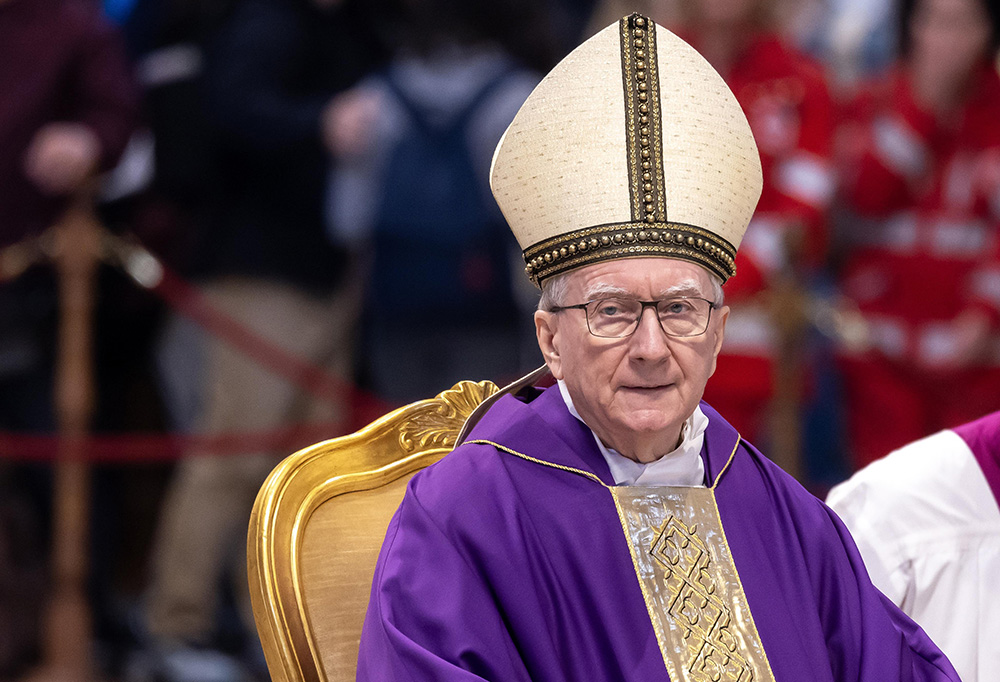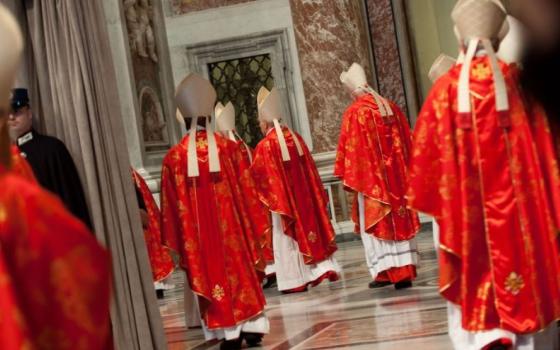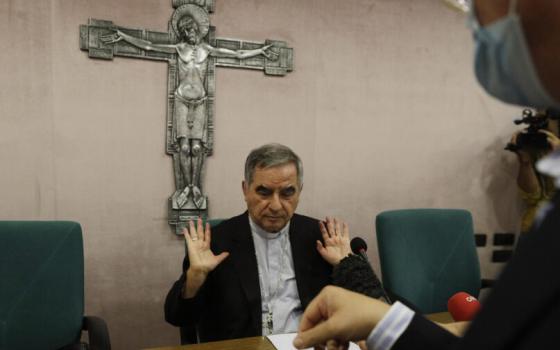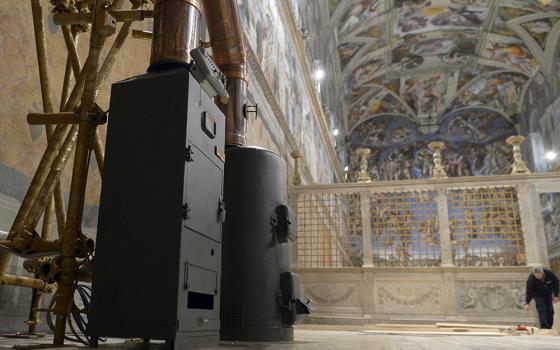Cardinal Pietro Parolin reads his homily at a Mass for some 200,000 young people in St. Peter's Square. The Italian cardinal said the late pontiff's legacy of mercy must live on in the church. While the words were stirring, some reports say his fellow cardinals were unimpressed. (CNS/Pablo Esparza)
On the day after Pope Francis' funeral, Cardinal Pietro Parolin celebrated a Mass for some 200,000 young people in St. Peter's Square, where he said the late pontiff's legacy of mercy must live on in the church.
"Our affection for him must not remain a mere emotion of the moment," Parolin said on April 27. "We must welcome his legacy and make it part of our lives, opening ourselves to God’s mercy and also being merciful to one another."
It was a spotlight moment for someone considered one of the top contenders to succeed Francis, having served as his secretary of state, or No. 2 official, since 2013. But according to multiple cardinals now gathered in Rome for meetings ahead of next week's papal conclave, Parolin is said to have failed the audition.
While the cardinal's words may have offered a ringing endorsement of the late pope, his stilted style left him unable to connect with a crowd. As one cardinal-elector told the National Catholic Reporter, the Mass was a reminder of Francis' charisma and communication gifts and that Parolin lacks both.
(CNS/Jerome Podojil, USCCB)
Advertisement
Around the Vatican, many curial officials have backed the idea of a Parolin papacy; their argument is that the 70-year-old Italian cardinal is "Francis, but quieter."
But writing today (April 30) in the Argentine daily, La Nacion, Elisabetta Piqué observed that many question the idea of Parolin as a "continuity candidate."
"Although Parolin was appointed by Francis as his deputy in August 2013 and brought (him) back to Rome from Venezuela, where he was nuncio (Vatican ambassador), many know that, over the years, they have grown apart," Piqué wrote.

Cardinal Pietro Parolin celebrates a Mass marking the 50th anniversary of Italy's Movement for Life in St. Peter's Basilica at the Vatican March 8, 2025. (CNS/Pablo Esparza)
In particular, the correspondent recalled that in Francis’ final months, the pope took a number of steps to block Parolin from gaining more power inside the Vatican and did not assign him to lead any of this year's Holy Week liturgies. Leading those services in the holiest week of the Christian year would have increased Parolin’s public profile at a time when Francis was sick.
But while early reports indicate that opposition is rising to a Parolin papacy, no clear rival candidate has yet to emerge as a favorite among the cardinals.
Cardinal Pietro Parolin stands by the pope's coffin in the chapel of Francis' residence at the Vatican April 21, 2025. (CNS/Vatican Media)
Despite Cardinal Giovanni Battista Re's strong backing of Francis' top priorities during his funeral Mass April 26, the dean of the College of Cardinals failed to offer one mention of what many see as Francis' legacy: synodality.
During his five-week hospitalization, Francis signed off on an implementation plan for the synod on synodality that will stretch into 2028, indicating his desire to ensure that it remains a priority.
Some of the strongest backing of synodality during the general congregations, the daily meetings that precede the conclave, has come from younger cardinals, according to cardinals who spoke on condition that they not be named.
More than one-third of the eligible cardinal electors under age 80 were delegates during the 2023 and 2024 synod on synodality here in Rome. How much they will use these closed door conversations over the next week to push for it to live on remains to be seen.
At an afternoon Vatican press briefing on April 30, reporters were told that the morning's general congregations included reports on the Holy See's finances from curial officials.
One hundred and eighty-one cardinals were present at the meeting, 124 of whom were cardinal-electors. Fourteen cardinals offered individual speeches, including on the themes of synodality, the Second Vatican Council, polarization and evangelization.
Rhina Guidos contributed to this story. The National Catholic Reporter's Rome Bureau is made possible in part by the generosity of Joan and Bob McGrath.








